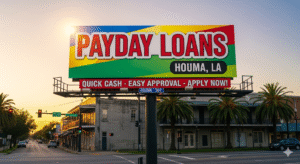
Can You Buy a Car with a Credit Card?
The short answer is yes, you can buy a car with a credit card. However, it’s not as straightforward as swiping your card at the dealership. There are several factors to consider, and not all dealerships will accept credit card payments for such a large purchase. If you’re wondering, “Can I buy a car with a credit card?”, it’s important to understand the dealership’s policies, card limits, and potential fees involved. Let’s break down the key considerations.
Dealership Policies
Many car dealerships have specific policies regarding credit card payments. They may limit the amount you can charge to a credit card, often capping it at a few thousand dollars. This limitation is primarily because credit card transactions incur fees for the dealership, which can significantly cut into their profits. For this reason, some shoppers find themselves asking, “Do car dealerships take credit cards?” The answer varies, as some may not accept them at all for large purchases like cars. It’s crucial to check with the dealership beforehand to understand their policy. Understanding these policies can save you from an unpleasant surprise at the point of sale.
Credit Limit and Card Type
Another critical factor is your credit card limit. Most people don’t have a high enough credit limit to cover the full cost of a car. However, if your limit is sufficient, you could theoretically charge the entire amount. Some premium credit cards offer higher limits, which might make this feasible for certain buyers. It’s important to know your exact credit limit and how close you are to it, as this will impact not only your ability to make the purchase but also your credit utilization ratio. Additionally, some cards might offer benefits or rewards that could be enticing, but they may not be worth the financial strain or risk.
Credit Card Fees
Credit card companies often charge fees for large transactions, and these fees can add up quickly. Be sure to check with your credit card issuer about any potential fees before making a purchase. Understanding the fee structure is essential, as these costs can sometimes be as significant as a few percentage points of the total transaction, making the car more expensive than anticipated. Additionally, if you don’t pay off the balance immediately, you’ll incur interest charges, which can make the car more expensive in the long run. It’s crucial to weigh these potential costs against any rewards or benefits you might earn from using the card.
Pros of Buying a Car with a Credit Card

While using a credit card to buy a car isn’t common, there are some potential advantages. If you’re asking, “Can you buy a car with credit card?”, the answer is yes—but it depends on the dealership’s policy and your card’s limit. For some buyers, the ability to earn rewards or take advantage of promotional interest rates makes this option worth considering.
Rewards and Points
One of the main benefits of using a credit card for a large purchase is the potential to earn rewards or points. If your card offers cashback or travel points, buying a car could help you rack up rewards quickly. However, it’s essential to ensure that the value of the rewards outweighs any fees or interest charges you might incur. For instance, if you’re earning 2% cashback but paying a 3% transaction fee, the math clearly doesn’t work in your favor. Additionally, points can be a great bonus if used wisely, such as for travel or other large expenses, effectively reducing the overall cost of your car purchase indirectly.
Convenience
Using a credit card can be more convenient than arranging a loan. The process is quick, and you don’t have to deal with the paperwork and approval process associated with financing. This convenience factor can be particularly appealing for those who dislike dealing with banks or who are in a hurry. The simplicity of a credit card transaction can save time and reduce stress, allowing you to drive away in your new car sooner. Moreover, the ability to manage and track your spending through your credit card statement can provide an added layer of financial oversight.
Short-Term Financing
If you plan to pay off the balance quickly, using a credit card could serve as a short term financing solution. This can be especially useful if you expect a large sum of money soon, like a bonus or tax refund, and want to avoid financing fees. The flexibility of credit card payments can be advantageous if you have a clear and reliable plan to pay off the debt promptly. However, this approach requires discipline and a strong understanding of your financial situation to avoid falling into a debt trap.
Cons of Buying a Car with a Credit Card
Despite the potential benefits, there are also significant downsides to consider. Many people ask, “Can you buy a car on a credit card?” While it’s possible, doing so may lead to high-interest charges, impact your credit utilization ratio, and limit negotiation leverage at the dealership. It’s important to weigh these risks against the rewards before choosing this payment method.
High-Interest Rates
Credit cards typically have higher interest rates compared to traditional auto loans. If you can’t pay off the balance quickly, the cost of interest can outweigh any benefits from rewards or convenience. This is a critical consideration, as credit card interest can compound rapidly, leading to a much higher total cost for the car. It’s essential to compare the interest rates of your credit card with those of potential auto loans to make an informed decision. Being aware of the potential financial strain of these rates can help you avoid unexpected costs.
Impact on Credit Score
Charging a large amount to your credit card can negatively impact your credit score. High credit utilization, or the ratio of your credit card balance to your credit limit, can lower your score and affect your ability to obtain loans or additional credit in the future. This impact can be long-lasting if not managed carefully, as high utilization is a key factor in credit scoring models. It’s crucial to have a plan to manage your credit utilization and to understand how it will affect your overall credit profile. Keeping your credit score healthy is important for future financial opportunities.
Limited Dealership Acceptance
As mentioned earlier, not all dealerships accept credit card payments for cars, and those that do may impose limits on the amount you can charge. This can be a significant barrier if you’re set on using a credit card for your purchase. Understanding these limitations ahead of time can prevent wasted effort and frustration. Additionally, it’s wise to have a backup plan in case your preferred method of payment isn’t accepted. Flexibility in your approach can ensure a smoother purchasing process.
Steps to Buy a Car with a Credit Card

If you’ve weighed the pros and cons and decided to proceed, here are the steps to follow. Many buyers wonder, “Can I buy a used car with a credit card?” The answer depends on the dealership’s policy and your card’s limit. If allowed, it’s important to confirm terms in advance, ensure you have the available credit, and understand any associated fees before making the purchase.
Step 1: Check with the Dealership
Before anything else, confirm with the dealership that they accept credit card payments and understand any limits or fees involved. This step is crucial as it sets the groundwork for your transaction and ensures you won’t encounter unexpected hurdles. Asking detailed questions about their policies can provide clarity and help you make an informed decision. It’s also a good idea to get any agreements in writing to avoid misunderstandings.
Step 2: Review Your Credit Card Terms
Read through your credit card terms to understand any fees or interest rates that will apply. Make sure your limit is high enough to cover the purchase. This step involves scrutinizing your credit card agreement to spot any potential pitfalls that could make the purchase more expensive. Understanding your card’s terms can prevent costly mistakes and ensure that you’re fully aware of the financial implications of your decision.
Step 3: Plan Your Repayment
Have a clear plan for how you will pay off the balance. Consider setting up a budget and timeline to ensure you can pay down the debt quickly and avoid high interest charges. Developing a repayment strategy is essential to prevent falling into a cycle of debt that could harm your financial health. This plan should include specific goals and milestones to track your progress and adjust as needed.
Step 4: Make the Purchase
Once everything is in place, you can proceed with the purchase. Make sure to keep all receipts and documentation for your records. This final step should be taken with care, ensuring that all details are correct and that you’re fully satisfied with the terms of the purchase. Maintaining thorough records can be invaluable for future reference and in case any disputes arise.
Alternatives to Using a Credit Card

If you’re hesitant about using a credit card, consider these alternatives:
Traditional Auto Loans
Auto loans often offer lower interest rates compared to credit cards. They also typically provide a structured repayment plan, making it easier to manage your finances. These loans can be obtained from banks, credit unions, or directly from the dealership, offering flexibility in terms and conditions. Understanding the terms of these loans can help you find a favorable option that aligns with your financial goals.
Personal Loans
Personal loans can be another option if you prefer not to go through traditional auto financing. They often have lower interest rates than credit cards and can be used for any purpose, including buying a car. These loans offer the advantage of flexibility and can be customized to fit your financial situation. Comparing different personal loan options can provide insight into the best rates and terms available.
Leasing
Leasing a car can be a cost-effective option if you don’t want to commit to buying. It typically requires a lower down payment and offers lower monthly payments compared to buying. Leasing allows you to drive a new car every few years without the long-term commitment of ownership, making it an attractive option for some buyers. Understanding the benefits and limitations of leasing can help you determine if it’s the right choice for you.
Final Thoughts
Buying a car with a credit card is possible, but it’s not always the best option. Consider your financial situation, the dealership’s policies, and the terms of your credit card before making a decision. Weigh the pros and cons, and explore alternatives to ensure you make the best choice for your needs. Whatever route you choose, make sure it aligns with your financial goals and helps you manage your finances effectively. Careful consideration and planning can lead to a successful car purchase that enhances your financial well-being.




